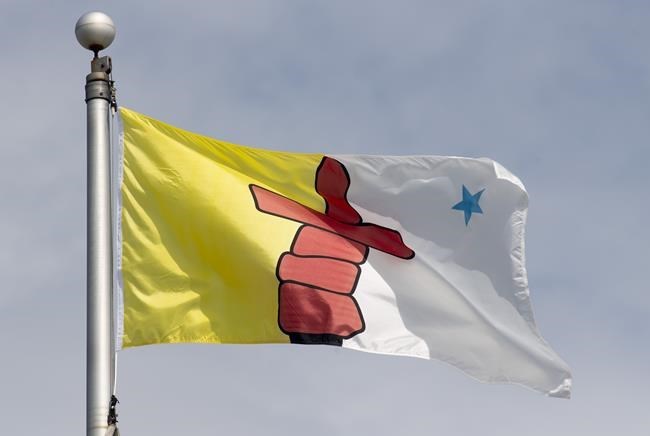ARVIAT, Nunavut — The mayor of Arviat in Nunavut says his community on the shore of Hudson Bay has strictly followed a state of emergency order that includes a nightly curfew.
Arviat, with a population of about 2,800, is the southernmost settlement on the territory's mainland. It has nine active COVID-19 infections and 306 recovered cases.
Mayor Joe Savikataaq Jr. said the hamlet has hired four additional bylaw officers to patrol the streets 24 hours a day and especially during the 10 p.m. to 6 a.m. curfew.
The state of emergency began Feb. 24 for seven days and has been extended for an additional week to March 8.
Savikataaq Jr. said the extra week will hopefully buy some time to lower the community's case count and reduce the risk of community transmission.
All of Nunavut entered into a two-week lockdown after COVID-19 first appeared in the territory in November. The virus has stubbornly hung around in Arviat and it's the only place that is still shut down. Schools and non-essential businesses are closed and travel restricted.
Savikataaq Jr. said no fines have been issued for breaking the curfew, but one verbal warning was given to a community member.
"Compliance is very high. Everyone is listening to it. It's amazing for a town of about 3,000 to have just one verbal warning," he said Tuesday.
Arviat RCMP said there have been eight COVID-related complaints since the state of emergency began, but no charges have been laid.
Savikataaq Jr. said it will take a few weeks to see if the state of emergency orders are working.
"It doesn't happen overnight. The past seven days and the seven days coming, you won't see those effects until further in the future."
Arviat's member of the legislature, John Main, said his constituents who live in overcrowded housing and who are infected with COVID-19 have called to ask why the government has not set up isolation spaces in the community.
"They have been calling and asking me, 'Where can I go to sleep? I can't stay at my house. I don't want to pass on COVID-19 to my family, so where do I go now?'" Main told the legislative assembly last week.
"Please envision or imagine you get a phone call from a doctor or a nurse and you are told that you have COVID-19," he said.
"On top of that, imagine there are 10 people living in the same house with you and you don't even have your own room."
Dr. Michael Patterson, Nunavut's chief public health officer, said the current outbreak in Arviat is based on household transmission. "There is still no evidence of community transmission in Arviat at this time."
Because of Arviat's travel restrictions, Main is attending the sitting of Nunavut's legislative assembly from home through a video connection. A television is wheeled into the assembly where his face appears on a screen each day.
To date, 8,066 people in Nunavut have received at least one dose of the Moderna vaccine. Nunavut's Department of Health did not respond to questions about how many people in Arviat have received the vaccine.
This report by The Canadian Press was first published March 2, 2021
— By Emma Tranter in Iqaluit, Nunavut
___
This story was produced with the financial assistance of the Facebook and Canadian Press News Fellowship.
The Canadian Press



